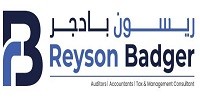Corporate Tax for DIFC Registered Companies

Corporate Tax for DIFC Registered companies
Every business is unique, with its own goals and requirements. Determining the best structure for your business and tax regime can be challenging. When deciding on a business model, you should consider factors such as the company’s legal form and tax registration requirements, available tax incentives, financial requirements, and strategic considerations.
When starting a business in the UAE, one of the most important decisions is whether to set up a corporate entity or operate as a sole proprietor or partnership. While there are numerous benefits of incorporating a business in the UAE, one of the main reasons is to help the business pay taxes efficiently and legally. In this blog post, we’ll discuss corporate tax for DIFC registered companies - who is eligible to pay corporate tax in the DIFC; what types of income are subject to corporate tax in the DIFC; calculating corporate tax liability in the DIFC; and filing and payment procedures for corporate taxes. We hope that this guide will help businesses understand how corporate tax works in the UAE and decide on an ideal tax regime for their businesses.
Overview of Corporate Tax for DIFC Registered Companies
Corporations registered in DIFC are subject to a 40-year tax guarantee of zero corporate income and profits tax. An entity looking to establish and conduct business in DIFC must apply for incorporation or registration of a DIFC entity. Entities may operate as financial entities, such as banks and financial institutions, asset management entities, such as asset managers and wealth management entities, finance entities, such as finance companies, or non-financial businesses such as retail, convenience stores, restaurants, and art galleries.
Financial activities permitted in DIFC are divided into 5 categories with different government fees and capital requirements. Non-regulated businesses are subject to an income tax rate of 20% from the taxable income exceeding AED 50 million (approx. USD$14 million), while financial entities have a tax rate of 25%. For entities with taxable income of under AED 50 million (USD$1.4 million), the income tax rate is 10%.
The overall tax burden on corporate income in DIFC varies depending on the type of business activity and its taxation status.
Who is Eligible to Pay Corporate Tax in the DIFC?
The DIFC offers a 0% corporate tax rate for a period of 50 years to all entities operating within its jurisdiction. There are no restrictions on capital repatriation, import/re-export duties, personal income tax or currency restrictions. Companies must have a registered office within the DIFC and have a minimum of two directors, who do not have to be resident in Dubai. Companies must keep accounting records for at least 10 years and have their accounts audited annually. Companies must sign up for free consultation with DIFC Approved Auditors.
Companies can apply for a tax-exempt status as well as a corporate tax registration certificate from the DIFC. The registration process includes submitting company documents and financial statements and paying an annual registration fee of AED 50,000. The tax exemption is granted after completing the registration process and obtaining the corporate tax registration certificate.
What Types of Income are Subject to Corporate Tax in the DIFC?
Corporate tax is a form of direct tax levied on the net income of companies and other businesses in the DIFC. It is levied by governments on the profits of companies, which is the difference between total income and expenses.Business activities in the DIFC include banking, investment, asset and wealth management, and finance. The companies registered in the DIFC are subject to zero taxes on corporate income and profits, as well as Government fees and capital requirements dependent on the category of financial services.
The DIFC’s Companies Law, General Partnership Law, Limited Liability Partnership Law and Limited Partnership Law determine the entity structures of registrants. Business entities registered under these laws must file corporate tax returns with relevant authorities.
As a financial center, the DIFC enforces strict corporate tax compliance through examinations and audits. It also has a robust dispute resolution mechanism that allows companies to resolve issues relating to corporate tax without legal proceedings or court appearances.
Calculating Corporate Tax Liability in the DIFC
DIFC offers a 40 year guarantee of zero taxes on corporate income and profits. Entities looking to establish and conduct business in DIFC must apply for incorporation or registration of a DIFC entity. Financial activities permitted in DIFC are divided into 5 Categories, each with different Government fees and capital requirements.
- For companies incorporated under the laws of the DIFC, there is a flat tax rate of 0% on profits and income for a period of 50 years from the effective date of taxation as per the DIFC.
- Business entities can also opt for an income tax rate of 10%, 15% or 20% depending on their tax liability.
- The corporate tax rate applicable in the DIFC is 15% for Companies incorporated under the laws of Dubai.
To calculate corporate tax liability in the DIFC, you can follow the steps outlined in DFR.
Filing and Payment Procedures for DIFC Corporate Taxes
- Applications for corporate tax registration and filing with the DIFC must be made through the Corporate Registry of the DIFC. The Corporate Registry will look into relevant information and form a conclusion as to whether to grant an entity a corporate tax registration certificate (also known as a 'OCRT').
- For entities seeking a corporate tax registration certificate, the process involves submitting an application, paying applicable fees, and providing detailed financial information. This financial information includes details of income, expenses, assets, liabilities, and capital.
- Once granted a corporate tax registration certificate, entities must abide by the applicable tax rules and regulations of the FTA. These include reporting taxable income and profits on a prescribed basis on a yearly tax return. Entities must also file annual financial statements with the FTA in a prescribed format and provide audited financial statements upon request from the FTA or its authorized officers.
- The FTA provides various e-services for DIFC taxpayers, such as online registration for taxes, submitting tax returns, and paying taxes online. The FTA also offers a Voluntary Disclosure Program to allow taxpayers to disclose past non-compliance with tax laws without facing penalties or prosecution.
As you can see, it is important for entities looking to establish and run business in the DIFC to be aware of the corporate tax regulations and procedures before finalizing their business plans.
Benefits of Registering a Company in the DIFC
- 100% foreign ownership and no corporate and personal taxes for a period of 50 years from inception is a major benefit of registering a corporate entity in the DIFC.
- The tax free regime has opened up various business opportunities for DIFC companies, especially those engaged in finance, media, IT, construction, manufacturing, retail, and others.
- DIFC companies also enjoy access to a vast network of double taxation treaties that provides relief from taxes on income earned overseas.
- This tax regime has helped DIFC companies raise funds at lower cost and invest more in the domestic economy.
- A 40 year license guarantees zero tax on corporate income and profits, which offers tax efficiencies as compared to other jurisdictions.
Saying yes to registering a corporate entity in the DIFC can open up a host of business opportunities for your corporate entity.
Conclusion
As a business operating in the UAE, it is critical that you understand corporate tax and its implications. This will help you plan your business operations smoothly and steer clear of legal liability. To ensure that your business runs smoothly and efficiently, you can engage a tax consultant who will help you file your corporate tax returns accurately and on time. In this way, you’ll be able to take advantage of benefits such as tax holidays and exemptions. If you’re looking for a specialized team of professionals to help you register a company in the DIFC, contact us today!

